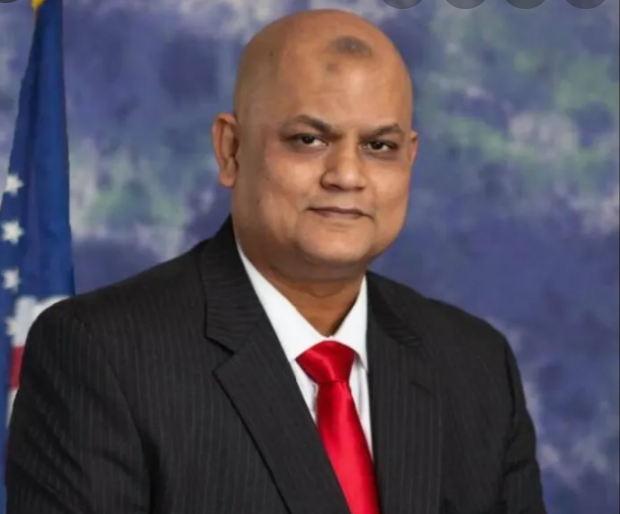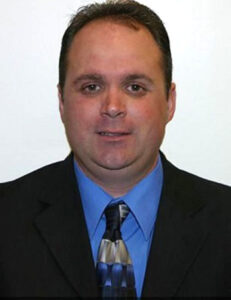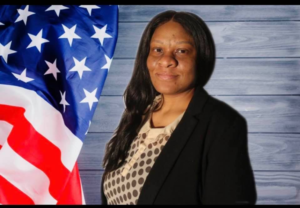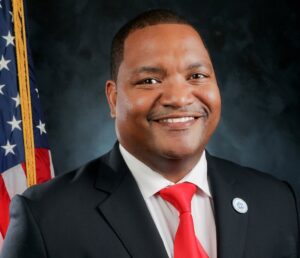After Assault, Hospitalization, Morshed Defies Assailants with Needle Exchange Vote as Council Moves to Close Oasis

Defying violent thugs who put 4th Ward Councilman MD Hossain Morshed in the hospital and over the peaceful protestations of activists and others who say the council will put vulnerable people at even greater risk by denying local access to clean syringes, the Atlantic City Council this evening voted to end the city's needle exchange program.
"We're willing to work with the state of New Jersey if they come up with a solution but it's out of

control," said Council President George Tibbitt. "The needles are all over the neighborhood. Panhandling back to the neighborhoods.
"Atlantic City has been doing this since 2007, but we are not doing it on the backs of our children anymore," the council president added.
At least two vocal dissenters on the council pushed back, aligning their views with testifiers who argued that drug usage continues even without the proximity of needle access programs, and objected to the council asserting that eradication of this program will reduce harm.
"In essence these services have helped out thousands of individuals.... there's a huge increase in drug use, opioid as well as syringe-based drug use," said Councilman Mo Delgado.
Multiple speakers cautioned local lawmakers not to scapegoat the needle exchange program - and warned of the impact of the program's loss. "Any life lost that could have been prevented, falls on us as well," acknowledged Delgado.
But the council president - fed up - displayed a sack of needles salvaged on the streets. "They give out these assisted suicide devices, being the needles, and these people are ending up dead in the streets," Tibbitt said.
Wondering why Atlantic City must shoulder the program while surrounding towns don't, At-Large Councilman Jeffree Fauntleroy added his voice to eradicating Oasis, the local needle exchange site, in the name of ensuring a quality of life for his residents. "I have family members on drugs but Atlantic City should take care of Atlantic City issues," he said, irritated by activists not from Atlantic City protesting the end of the program.
Showing up via telephone on this evening's virtual city council meeting, Morshed (pictured, above) as promised added his "aye" vote after suffering a broken nose and eye socket in a weekend attack engineered, he said, to intimidate him on this issue. "I thought they were going to shoot me. I'm thinking about my family and if I died, who was going to take care of my family," the councilman told ABC News.
According to ABC: "Morshed believes he was the target of an attack because the city is declaring a war on drugs. The first vote for an ordinance was held last month that would end the city's needle exchange program."
"When Morshed said got out of his car, he was confronted by several men and women carrying guns. One of the attackers spoke to him, he said.
"'He said don't go against the drug business. His second sentence was don't go against needle exchange and his third sentence was don't go with Sarkos,' Morshed said.
"Atlantic City Deputy Police Chief James Sarkos is serving as the interim officer in charge of the department.
'"This is the message for Atlantic City. This is the message for Atlantic City police,' Morshed said an attacker told him."
Tibbitt confirmed plans to end the needle exchange program at tonight's meeting, and he and his colleagues moved forward; although the council president did insist that the city will continue to entertain conversations about the future of a repackaged program. By a vote of 7-2, the council - including an undeterred Morshed - on Wednesday night voted to close Oasis, located on Tennessee Avenue about 3 1/2 blocks from the beach.
Breaking from their colleagues in the majority, Second Ward Councilwoman Latoya Dunston and

Councilman Delgado voted no.
The (FULL!) council people's vote went down as follows:
- 1st Ward Councilman Aaron Randolph YES
- 2nd Ward Councilwoman Latoya Dunston NO
- 3rd Ward Councilman Kaleem Shabazz YES
- 4th Ward Councilman MD Hossain Morshed YES
- 5th Ward Councilman Muhammad ‘Anjum’ Zia YES
- 6th Ward Councilman Jesse O. Kurtz: YES
- Council President & Councilman-At-Large George Tibbitt YES
- Council Vice President & Councilman-At-Large Moisse “Mo” Delgado NO
- Councilman-At-Large Jeffree Fauntleroy II YES
"A vote tonight is an opportunity to push back for a new Atlantic City," said Kurtz.
"I'm hoping tonight if this goes through, we have a plan to save our residents," countered Dunston. "We need a safe space. We need more harm reduction in our city."
"There was going to be a plan two and a half years ago; we have not heard anything more about that plan," said Randolph. "We can do no more than vote our conscience for the people of this city. I believe in helping those who are downtrodden, but we should not have to bear the responsibility of everybody."
Morshed spoke before his "Yes" vote.
"I love Atlantic City," he said. "I don't want anyone to say Atlantic City is a place for collecting trash."

Contacted for comment after the council voted, Atlantic City Mayor Marty Small said, "I support the resolution, and when it comes to my desk, I will sign it."
The prodigious public comment period spoke to the thorniness of the subject matter.
Writing about the highly controversial issue, InsiderNJ columnist Jay Lassiter this past Friday noted:
"Why needle exchange? A clean syringe costs a quarter. A lifetime treatment for hepatitis comes with a $200,000 price tag, a burden we all share since (in most cases) IV drug users don’t have the best insurance coverage.
"The South Jersey AIDS Alliance who manage Oasis have proposed a new site behind the convention center that’s 'far enough from the casinos but still accessible to those who need it most because reduction saves lives. It also saves a lot of money not treating expensive diseases associated with drug abuse.'
"Last week, a coalition of Harm Reduction devotees gathered in Atlantic City to support Oasis and urge a more robust embrace of harm reduction policies. Needle exchange, for example, limits the damage drug users do to their health while they’re out there using. Oasis is a point-of-entry for everything from wound care, HIV testing, lifesaving NARCAN, and drug treatment. It’s a good investment and it keeps drug users out of our COVID-burdened hospitals."
Activist Loretta Dutton of Galloway pleaded with the council to table the issue. "In all due respect, I could collect that number of syringes [in other parts of the city] in an hour and a half," she told Tibbitt.

Brittany Holom-Trundy, senior policy analyst for New Jersey Policy Perspective, likened the loss of Oasis to the loss of healthcare. "Health is a human right; denying evidence based care rejects that notion, and it's not something we should ever let happen," said Holom-Trundy.
Citing a 30% uptick in opioid overdose deaths nationwide, "This is not the time to be eliminating services," said school counselor Gretchen Halfpenny of Atlantic County. The estimated 93,331 deaths from drug overdoses last year, a record high, represent the sharpest annual increase in at least three decades, and compare with an estimated toll of 72,151 deaths in 2019, according to provisional overdose-drug data released last week by the Centers for Disease Control and Prevention.
But the council - including Morshed, intimidated, beaten and threatened with guns, he said, prompting a police investigation - finally saw the issue differently.
"What happened to Councilman Morshed is a true shame," Councilman Kurtz - who voted "yes" tonight - told InsiderNJ. "The brazen nature of the attack underscores the need for more frequent police patrols and a stronger law enforcement presence. I wish my colleague a quick and complete recovery."
"This administration," said Small, "opposes violence."





